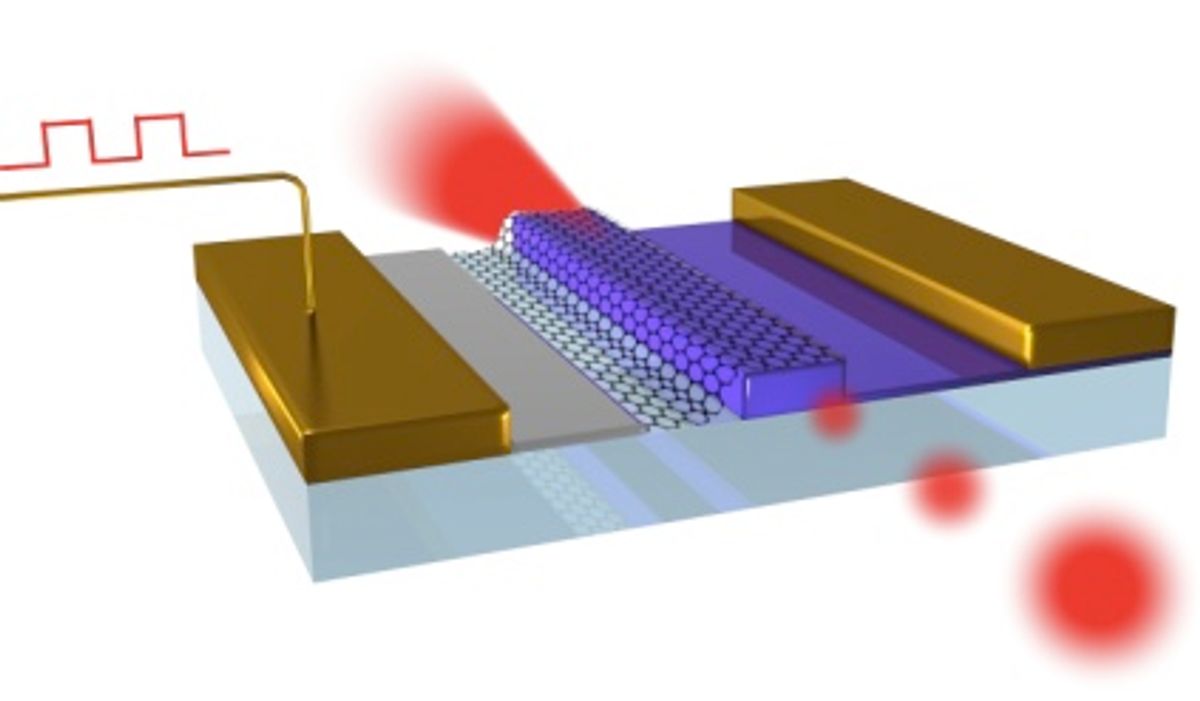IEEE Spectrum has coverage this week on recent research conducted at the Nanoscale Science and Engineering Center at the University of California, Berkeley that demonstrated a device made of graphene can modulate light and potentially operate at speeds of 500 gigahertz.
Perhaps the most intriguing aspect of this research is how commercially attractive this material for integrated optical modulators is compared to other materials that are being considered.The idea is that someday we will be replacing all those copper interconnects in chips with optical interconnects. Some material needed to be found that was easily compatible with complementary metal-oxide semiconductor (CMOS). Silicon modulators were too big for on-chip optical interconnects and the germanium and compound semiconductors being experimented with were not so easy to integrate into CMOS. So, here we are. We’ve got a material that one of the researchers, Ming Liu, says should fit in easily with CMOS manufacturing. But wait. The distressing bit of the story is the comment provided by Frank Schwierz, head of the RF & Nanoelectronics Research Group at Technical University of Ilmenau, in Germany, who, on the one hand is encouraged by the research, but on the other laments that it may take some time before we would ever see this in a device.
"This is not related to the modulator itself but rather to the fact that the semiconductor industry itself is very conservative," he is quoted as saying in the Spectrum article. "History tells us that chipmakers introduce new materials when, and only when, it is unavoidable."
Indeed. Optical interconnects on chips would be wonderful, no doubt. However, chip manufacturers may have more pressing concerns. This kind of wrinkle in capitalism and how it impacts technological advances I have mentioned before and is hardly anything new, but a bit demoralizing nonetheless.
Dexter Johnson
Dexter Johnson is a contributing editor at IEEE Spectrum, with a focus on nanotechnology.
The Conversation (0)




